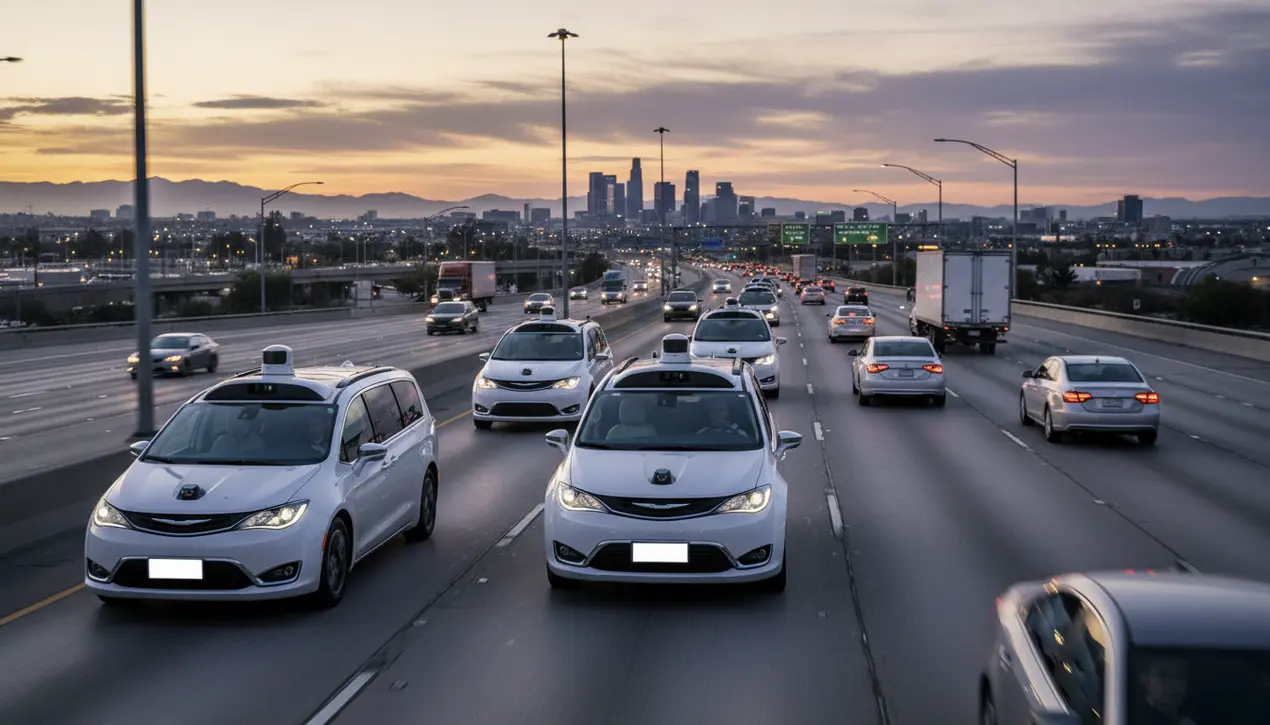
Otherauto & mobilityAutonomous Cars
Waymo to roll out driverless taxis on highways in three US cities.
AN
Andrew Blake
2 hours ago7 min read1 comments
Alphabet's autonomous vehicle subsidiary, Waymo, is shifting its expansion into a higher gear with a significant strategic pivot: deploying its fully driverless taxis on highways in Los Angeles, Phoenix, and the San Francisco Bay Area. This isn't merely an incremental route extension; it's a fundamental leap from the relatively controlled, low-speed urban environments into the complex, high-stakes world of freeway driving.For years, the autonomous vehicle industry has treated highway autonomy as a sort of final boss level, a domain where speeds are faster, decision-making windows are narrower, and the consequences of a software glitch are exponentially greater. Waymo’s confident move signals a belief that its technology has matured beyond the training wheels phase.The company, which began life as the Google Self-Driving Car Project back in 2009, has been methodically building towards this moment. Its years of data collection in Phoenix, where it already operates a commercial robotaxi service, have provided a rich training ground, but highways present a distinct set of challenges.We're talking about merging into 70-mile-per-hour traffic, navigating sudden slowdowns, interpreting the complex intentions of human drivers weaving across lanes, and handling unpredictable road debris—all without a human safety driver as a backstop. This expansion feels like a direct challenge to the entire automotive and tech ecosystem, from General Motors' troubled Cruise to Tesla's ever-promised Full Self-Driving capability.It raises immediate questions about public perception and regulatory readiness. How will state transportation departments and the National Highway Traffic Safety Administration respond? What new insurance and liability frameworks will need to be established when a software algorithm, rather than a person, is responsible for a high-speed collision? And let's not forget the human element: the long-haul truckers, the ride-share drivers, and the entire logistics industry that will be watching this rollout with a mixture of awe and anxiety.The potential upside is colossal—reimagined logistics, increased road safety by removing human error, and new mobility paradigms for cities. But the path is littered with 'what-ifs.' What if a sensor fails during a heavy downpour on the I-10 in LA? How does the AI handle a multi-car pileup ahead? Waymo's bet is that its suite of Lidar, radar, and cameras, powered by sophisticated AI, is up to the task. If they succeed, the highways of these three cities will become the proving ground for a transportation revolution.If they stumble, the entire industry could face a regulatory winter that sets back adoption by years. It’s a high-risk, high-reward gambit playing out in real-time on America's asphalt, and the outcome will dictate the pace of our autonomous future for the next decade.
#featured
#Waymo
#driverless taxis
#autonomous vehicles
#highways
#expansion
#Los Angeles
#Phoenix
#San Francisco
Stay Informed. Act Smarter.
Get weekly highlights, major headlines, and expert insights — then put your knowledge to work in our live prediction markets.
Comments
Loading comments...
© 2025 Outpoll Service LTD. All rights reserved.